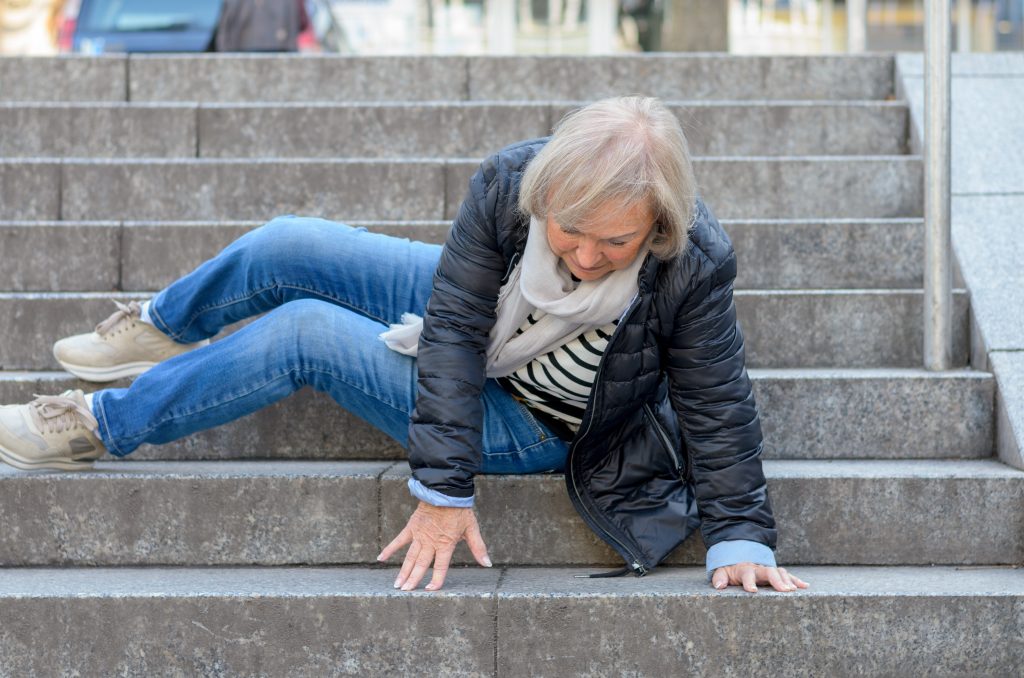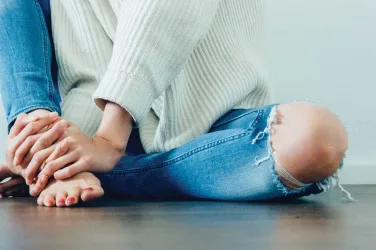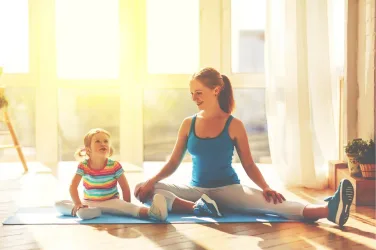By Kimberly Blaker
Trips, stumbles, and minor tumbles may not seem like a big deal when you’re younger. Yet, for seniors, any fall has the potential to result in severe injury or a health crisis. According to the Centers for Disease Control, a senior over 65 falls every second of every day. One in five falls ends in serious injury.
What Are the Causes of Falling?
A variety of factors increase an individual’s likelihood of falling. Usually, it’s a combination of multiple factors that leads to a fall. Being aware of your personal risk factors can help minimize dangers.
Aging Factors
As you age, there’s a natural degeneration in various bodily functions, including decreased strength and balance, slowed reaction times and reflexes, worsened vision, impaired hearing, and cognitive impairments.
These individual issues can cause difficulty walking, going up and down stairs, sitting, standing, or lying down.
Medical Factors
Aging may lead to higher susceptibility to certain medical conditions that increase your risk of fall-ing. Some health issues associated with fall risk include dementia, osteoporosis, vertigo, depres-sion, COPD, diabetes, arthritis, and disabilities, particularly in the feet or lower limbs.
Surgical procedures for medical conditions or injuries can also affect an individual’s mobility, strength, and function.
Medications taken for medical conditions can increase the risk of falling because of the side effects that compromise balance. Taking four or more drugs is also associated with falling.
Environmental Factors
Falls are more common in environments with slippery floors, poor lighting, uneven surfaces, stairs, and clutter. Many falls occur in the bathroom. Getting in or out of the shower or bath can be particularly hazardous to seniors.
Prevention & Planning
- Make sure your prevention strategies address your risk factors. List your personal risk factors, look at which ones can be changed, and plan to decrease those risks.
- Stay active at an appropriate level for your health and ability. Try lower-intensity workouts like yo-ga, tai chi, walking, swimming, water aerobics, and weight training, especially for leg muscles.
- Work with a physical therapist to prevent falls or to heal from injury, especially if you have health risk factors. A physical therapist can help you improve balance and strength while considering your needs.
- Get regular physical exams to check for any risk factors or problems that could lead to falls. Be honest about your concerns and discuss any side effects of your medication.
- Wear well-fitting, comfortable, wide, and flat shoes for a stable base.
- If needed, use devices like canes or walkers for assistance.
- Assess your environment and take steps to make it safer. Consider features like grab bars in the bathroom, secure handrails on stairs, a more accessible tub or shower, and plenty of light. Also, avoid small rugs that can bunch up or catch on your shoes, and remove clutter to keep floors and spaces clear.
- Have a plan in case you fall and know what to do and how to get help. If you’re at risk, get a wear-able emergency fall device to call for medical assistance. New technology is available for automatic fall risk detection. There are also manual devices to push in case of an emergency.
For seniors, falling can be a significant concern in staying safe and healthy. But falling isn’t an inevitable part of growing older. Taking these steps to lessen risks and be prepared in the event of a fall will go a long way toward living a healthy, fulfilling life.
What Happens to Seniors Who Suffer a Fall?
- Just one fall can have a significant negative impact on a senior’s quality of life.
- Most fatal injuries occur from falling.
- 95% percent of all hip fractures happen during a fall.
- Falling is the leading cause of traumatic brain injury.
- A fear of falling again is common.
- Seniors who’ve fallen may start avoiding activities that could lead to another fall.
- Injuries from a fall may contribute to an inability to function independently and require care or moving to a nursing home.
- The consequences of falling may increase the risk of depression.
- Medical costs after a fall can be expensive.
Read more about Senior Living here on LivingMagazine.net: CLICK HERE











